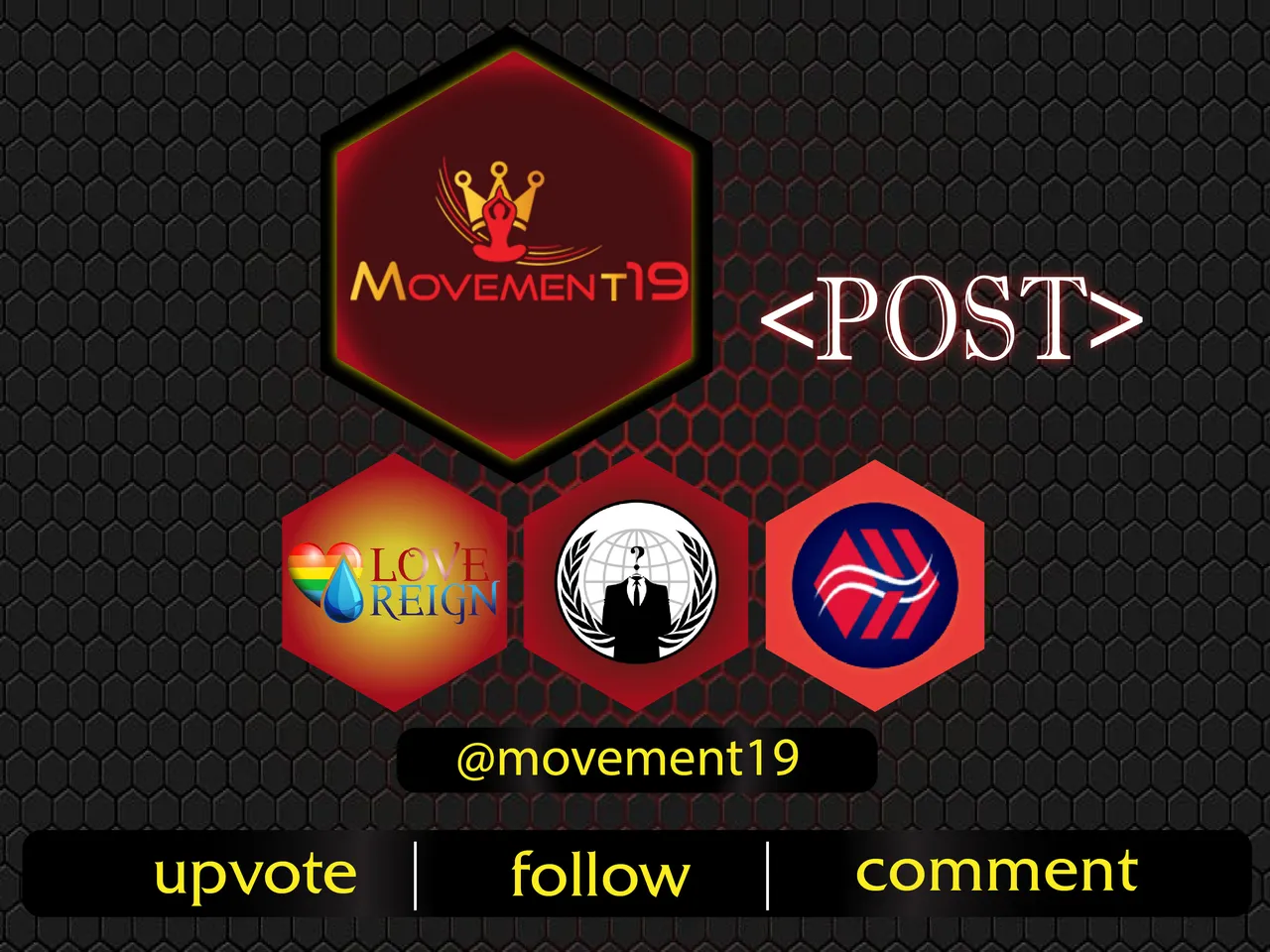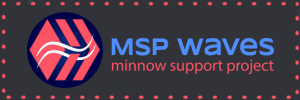


Flew Shot is the title of my weekly posts about whatever random content I come up with. From writing about blogging and marketing to promoting my podcasting career, curating music & art to writing about sociopolitical issues and agriculture. I'll create one of these at least once a week, often more. Sometimes I use specific tags and communities for these posts.

My First In-Depth One-on-one with Dookie Brown Flow from Sicklerville, NJ.
Below is a paper I wrote for Human Behavior in The Social Environment, Kean University Grad School, Fall 2022.
I have known DeAndre Brown, a rapper by the name of Dookie Brown Flow, almost five years. We had only met face-to-face, or as we say on the internet, IRL (in real life), this year for the first time. Before that, we knew each other through a global network of content creators and crypto enthusiasts utilizing newly discovered blockchain technology and the idea of a decentralized economy via Web3, beginning almost a decade ago for some. He and I having crossed paths is two-fold - he is a rapper from New Jersey, I am a DJ raised in The Garden State; he is a practitioner of Christianity, I am a radical activist with a humanistic approach.

When we originally met, in a virtual space within the Discord platform, there was a growing community of bloggers and live-streamers posting their life’s endeavors on a groundbreaking platform which is the world’s first blog built on a blockchain, the first decentralized social network where users earn crypto currency for their content and engagement (“What Is Steemit (STEEM) and How Does It Work?,” 2022). Many early adopters accrued millions of dollars’ worth of crypto, many more made a lot of money and began to live comfortably engaging in artistic careers as well as grassroots activism, such as crowdsourcing and crowdfunding. Large groups of writers, musicians, podcasters, nerds and geeks galore were posting their music, poems, recipes, photography, short films, essays, and every other sort of content one can imagine: at the same time, reinvesting their profits almost entirely along with their collective efforts engaging in outreach around the world.

Families were housed, people were moved from the streets into tiny homes and high-tech vehicles equipped for van-life. I can personally attest to knowing of people in the hundreds, perhaps thousands by now, relying entirely on content creation each and every day on a newer platform - hive.blog (a study which ought be conducted). Besides, a few people I know personally in the United States and Canada, DeAndre being one of them, and several in Europe and Asia, I am aware of several South American and African communities relying solely on creating and posting content on blockchains such as Steem, and now Hive. In 2017, a local community park was funded entirely by the Steem blockchain (Ruiz, 2017). The World Wide Web and smart devices have caught up with the idea of a post-to-earn model and we see much of this grassroots kind of work throughout major platforms such as TikTok today; however, blockchain maintains a growing allure for those seeking to remain outside the bounds of corporate and government overreach, for now.

In 2018, I had just completed the requirements for a bachelor’s degree and was struggling to keep my family together, fed, warm for the winter and thriving the way we had been until we lost our benefits abruptly. A close friend of mine, while working as an author and journalist, knowing of my family’s hard time, reached out to clue me in about how he had been able to earn a living creating content. He and I were a little late to make a million dollars, but we have been able to pay some bills and further fund our hobbies and passions. DeAndre is in roughly the same position in the content creation sector, where he has been able to pursue a lifelong career as a an entertainer and educator, while displaying what he believes to be true Christian ideals. DeAndre’s grandfather is a pastor with Solomon’s Temple Baptist Church, where they give out two to three pounds of food per day per person along with bookbags full of school supplies in North Philadelphia, Pennsylvania.

DeAndre described his grandfather as a man admired and looked up to by his community. Because ethnicity and culture often play a key role in one’s upbringing and perhaps shape their sociopolitical ideology and worldview, one wonders how growing up as a black person in an ethnically diverse northeastern US suburb had an impact on his life and how he views the world today. If his grandfather taught him one thing, it is that being black is not an excuse. As an artist, he recognizes that music influences some peoples’ image of his community. In his words, he does not believe that is “who we are or how we see ourselves”. Rather than focus on racial or ethnic differences, DeAndre interprets his faith-based belief system to mean that everyone deserves food and essentials. He would direct the conversation to a solution-oriented discussion centered around the individual, the family, the neighborhood, the community and society. In that order. One thing he and I have in common is our philosophical groundings in an entirely peer-to-peer, DIY, localized and decentralized economic model aimed at the eradication of poverty. Something akin to the economic theory outlined in, Yale graduate and author, Charles Eisenstein’s book Sacred Economics.

Maslow’s Hierarchy dictates that for a human to become self-actualized all necessities and more must be met. Research over the past century shows that humans’ basic needs such as food and shelter, have not only been entirely commoditized for profit, they have become increasingly difficult for the average hard-working citizen to afford (Temin, 2018). Even more recent research indicates that poverty has many more implications for one’s overall well being beyond that of financial stability and food-insecurity. During the human developmental stages, scientists have been able to map the brain and better understand the processes involved in the creation of healthy neurons, and with updated imaging techniques we are able to see how neuronal connections are made. As well, we can see when they are damaged, and now scientists have been able to watch them heal over time (Romer & Walker, 2007).

What scientists have discovered is that the brain produces a growth hormone, a protein known as Brain Derived Neurotrophic Factor (BDNF), which is an essential building material for the protective layer around the neurons which allow them to carry signals to and from the brain for a human to function. Science is also teaching us what dietary habits and lifestyle practices may help this process along and those which may hinder or prevent it entirely. Researchers believe that eating less and consuming a healthier diet, physical activity, exposure to sunlight, socialization and lowered stress facilitate ideal conditions for BDNF to occur, which improves memory, mood and energy levels. A lack of balanced BDNF levels have been attributed to the rise in illnesses such as obesity, diabetes, depression, Parkinson’s, Alzheimer’s, depression and epilepsy (TEDx Talks, 2016).

If we are to see the world through a humanistic lens as Abraham Maslow did when developing his theory, The Hierarchy of Needs, we cannot help but understand that our society has been systematically stripping its people of resources, dignity, rights and wherewithal for decades regardless of ethnic, cultural, religious background or geographic location. As evidently stated by MIT professor, Peter Temin, in his bestseller, _The Vanishing Middle Class_, society is increasingly divided in two classes – the very wealthy and the poor. DeAndre falls somewhere in between when we consider his savvy for utilizing what limited assets and resources may have been available to him in order to make well thought out investments by budgeting his time, energy and creativity towards a productive and progressive end. He cites a sense of urgency as motivation and the joyful experience he receives from doing the faith-based outreach and educational work he does. He also recognizes the challenge in trying to make people understand that they deserve more and that they can in fact achieve goals and get more out of life.

Another thing DeAndre and I have in common is our agreement that, in addition to embracing, adopting and adapting modern technology, we must engage in a form of unlearning within our communities. Much of the research regarding the origins of modern-day poverty in America, aside from other socioeconomic and political factors, points to an exponential rise in the number of families moving from rural areas and farm-centered lifestyles to urban areas and job-centered lifestyles in an alarmingly short span of time (Duncan & Jeanne, 1999). And with this historically unprecedented radical societal change comes significant alterations of our diets, scenery, air quality, amount of time spent outdoors and how active we are among many other routines and habits which, in the grand scheme of human history and evolutionary development, is entirely new and grossly understudied.

DeAndre believes, in order to combat poverty and the rampant preventable diseases and societal ills which accompany it, we must return to some semblance of agrarianism, or what some might term techno-agrarian. Through the advent of the internet and now social media, we are learning ways in which humans can grow and source free abundant superfoods in suburbs and inner cities by implementing gardening, foraging and preservation techniques which our elders and ancestors have practiced for many generations. Viral social media influencers like Alexis Nikole The Black Forager have risen through the ranks as an expert to give her own TED Talk as well as interviews on National Public Radio (NPR). Rob Greenfield, a long time YouTube off-grid and zero-waste entrepreneur, has also made his way on to the TED stage to teach sustainable and minimal lifestyles.

Content creation has become a viable public soapbox for the dissemination of information. So much so that an emotionally charged debate rages on over who should have the power to censor internet platforms and whether community guidelines can be applied and whether they should be adhered to by content creators and those they engage with. This fight has been ongoing since adult photographer Barbara Nitke and the National Endowment for The Arts battled the Federal Communications Commission in the Supreme Court and lost nearly two decades ago. This is another reason why activists and advocates for radical social reform, such as DeAndre, gravitate towards decentralized technologies and modalities such as blockchain based content creation and social networking as well as DIY culture when it comes to community outreach and engagement.

You will often see or hear DeAndre in character, as a Hip Hop MC, saying “Spread the dookie”. What he means is a message of love he wishes to share with everyone he encounters. As he tours the globe performing at Hip Hop shows and teaching crypto and financial literacy to anyone wanting to become more financially independent and economically sustainable, you will often hear him proclaim, “the power is back to the people”. At home, in the City of Brotherly Love and New Jersey, he engages in outreach providing for anyone in need without question.

We are currently running a delegate-a-thon with a goal of reaching ONE MILLION HIVE POWER. The HP will be used to reward all of he participants on Post Up, our weekly live curation podcast on @msp-waves. The links below will take you to hivesigner, a secure way to delegate your HP to any user. You can delegate for as long as you wish, for it to be effective we ask that you do so for at least a month.
| 100 | 200 | 300 | 400 | 500 | 1000 | 1500 | 2000 | 2500 | 5000 |
After clicking the link check the value, you may change it to any amount you desire. Enter your Hive username and use your Private Active Key to delegate. Please be sure to leave at least 50 HP in your own account. Also, new delegations override any old ones. If you need help feel free to leave a comment or contact us on Discord - AbadaniSolutions#0266.








@